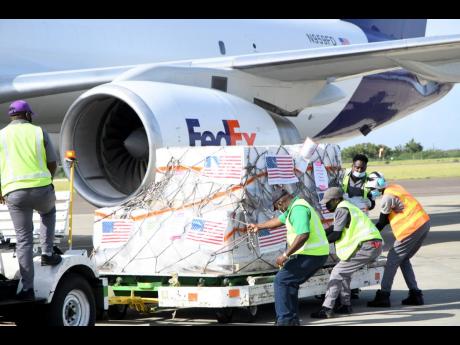(Jamaica Gleaner) Jamaica has been jolted back into lockdown mode owing to a suffocating third wave of the COVID-19 pandemic as the Andrew Holness administration continues to fend off deciding whether mandatory vaccination will have to be implemented.
Some of the country’s major business and health lobbies agree that the measure is critical. The significance was amplified given that the announcement by Prime Minister Andrew Holness on Thursday night came just a day after the highly contagious variant, Delta, was confirmed on the island.
But for essential services and critical businesses, Jamaicans will have to stay home on August 22, 23, 24, 29, 30, 31, and September 5 – seven days the authorities hope will tame an average positivity rate of around 39 per cent.
Allowances were made for the religious community, whose numbers approved for in-person services have been cut.
“The Government has been taking a very gradual approach knowing the society that we have. That many persons live day to day, many persons have no savings, and you can’t disrupt plans without giving at least some notice,” said Holness, noting that the measures should not be a surprise.
The Medical Association of Jamaica (MAJ), the Private Sector Organisation of Jamaica (PSOJ), and the Jamaica Agricultural Society (JAS), representing key industries and hundreds of thousands of workers, endorsed the restrictions even as they stand to lose millions.
“Something drastic was required because we are in the midst of a third wave,” said Dr Andrew Manning, who heads the MAJ. “We have to slow down the spread of the virus. We think the measures are appropriate … . There seems to be limited compliance with the measures, and the hospitals are filled beyond capacity.”
PSOJ President Keith Duncan said the tightened restrictions would be “disruptive” but “we are hopeful that these measures will have the desired impact to bring down the cases.
“We are urging all our citizens to make the sacrifice and comply,” he said, a point echoed by Lenworth Fulton, the president of the JAS, which represents more than 220,000 farmers.
“We do have farming exercises that have to be attended to from early morning such as those who are in dairy and those who have poultry operation, livestock. Once they have the ID, they can proceed. But I urge all of them to get vaccinated,” Fulton said.
The path for the drastic measures was paved by Chief Medical Officer Dr Jacquiline Bisasor McKenzie, who painted a grim picture of the island’s COVID situation, which, she argued, warranted the “serious” measures.
Nothing was spared as the CMO highlighted, among other things, the “overworked and stressed” healthcare workers; the low vaccine take-up; the bed shortage crippling hospitals now affecting non-COVID patients and Jamaica’s young people, aged 18-39, among whom infections are soaring.
The age group of concern, the CMO said, has always recorded the largest number of cases, but now, the number has increased from 37.4 per cent of total cases in the March-April second wave to 42.9 per cent of cases.
“It does again suggest that there is a lot of movement that is happening in this age group. This age group really needs to stop the various activities that are causing increase exposure and increase spread,” she said.
Deaths and hospitalisations are also proving a major problem for the health sector, whose major hospitals are beyond their capacity for COVID -19 patients.
“This is where we’re seeing the biggest impact,” the CMO said of hospitalisations. “We’re up to 90 (average admissions per day). About two or three weeks ago, we were in the region of about 30 admissions per day.”
Jamaica, up to August 18, confirmed 59,932 cases and 1,342 deaths.





